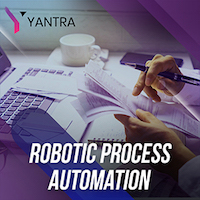NetSuite is one of the leading cloud ERP business software solutions for start-ups to enterprise. This unified business management suite, encompasses ERP/Financials, CRM (Customer Relationship Management), and HCM (Human Capital Management) , and eCommerce.
Yantra Inc. NetSuite consulting can help your organization gain the right visibility and control.� Provide NetSuite training, and NetSuite implementation to give you the tools to make the right decisions by leveraging NetSuite’s native flexibility and built-in business intelligence capabilities.
NetSuite Consulting Services provide a wide range of services including:
– Strategy and Planning
– Implementation
– Support and Maintenance
– Customization
NetSuite Implementation Process and What to Expect from a Yantra?
Yantra’s NetSuite Implementation services provides you with the best practices and tactics for implementing NetSuite. We bring the technology understanding and design unique solutions to best suits your industry, along with following the company’s procedures and policies. With our extensive experience we understand your business, and ensure smooth adaptation of varied existing systems to one unifies NetSuite platform for scalability and growth.
Netsuite professional Services and Why They’re Worth It?
Offers a wide range of services that are designed to help businesses Scale up, spin off, adopt new business models quickly and easily. These services include:
– Helping companies with the implementation of Netsuite solutions
– Providing advice on how to get the most out of Netsuite solutions
– Ensuring that companies have the right infrastructure in place for their business needs
How can a Cloud Enterprise Resource Planning (ERP) system like NetSuite streamline businesses?
- Centralized Data Management: Cloud ERP systems centralize data from various departments and functions, including finance, HR, inventory, sales, and procurement. This centralization eliminates data silos and ensures that all employees have access to up-to-date and accurate information.
- Real-Time Data Access: With cloud ERP, employees can access critical business data from anywhere with an internet connection. This real-time access to information allows for faster decision-making and better collaboration among teams, including remote and distributed teams.
- Improved Efficiency: Cloud ERP automates many manual and repetitive tasks, such as data entry and reporting. This automation reduces the risk of errors and frees up employees to focus on more strategic tasks, ultimately improving overall efficiency.
- Streamlined Workflows: ERP systems often come with predefined workflows that help standardize and streamline business processes. This can lead to consistent and efficient operations across the organization.
- Inventory Management: Cloud ERP systems can optimize inventory management by providing real-time visibility into inventory levels, demand forecasting, and order processing. This helps reduce excess inventory, lower carrying costs, and prevent stockouts.
- Financial Management: Cloud ERP systems offer robust financial management capabilities, including accounting, budgeting, and financial reporting. They help businesses track expenses, manage budgets, and generate financial statements accurately and efficiently.
- Customer Relationship Management (CRM): Some cloud ERP systems include CRM functionality, allowing organizations to manage customer interactions, sales, and marketing activities from within the same platform. This integration can improve customer service and sales processes.
- Supplier Management: Cloud ERP systems enable businesses to manage relationships with suppliers more effectively by tracking orders, payments, and performance. This can lead to better supplier negotiations and cost savings.
- Scalability: Cloud ERP systems are scalable, meaning they can grow with your business. You can easily add or remove users, modules, and features as your business needs change.
- Security and Data Backup: Cloud ERP providers typically invest heavily in security measures, including data encryption, regular backups, and access controls. This ensures the safety and integrity of your business data.
- Cost Savings: Cloud ERP eliminates the need for on-premises hardware and maintenance costs associated with traditional ERP systems. It also offers predictable subscription-based pricing, making it easier for businesses to budget for their ERP needs.
- Compliance and Reporting: Many cloud ERP systems come with built-in compliance features to help businesses adhere to industry-specific regulations and reporting requirements. This reduces the risk of non-compliance and associated penalties.
In summary, cloud ERP can help organizations of all sizes better manage their resources, make data-driven decisions, and adapt to changing market conditions. Choose the right cloud ERP solution and implement it effectively to maximize its benefits for your specific business needs.











